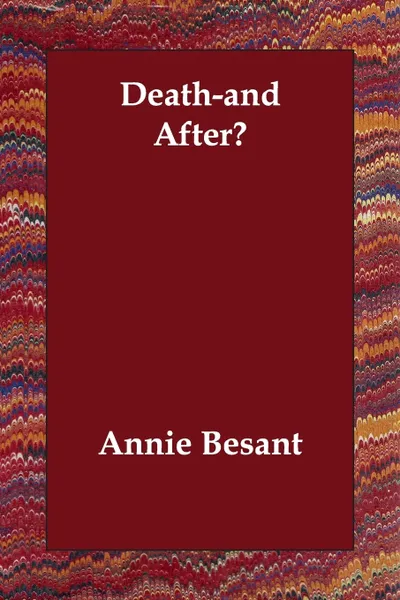Death-and After?
📗 Annie Besant, nee Wood, (1847-1933) was a British socialist, theosophist, women's rights activist, writer, orator, educationist, and philanthropist. Regarded as a champion of human freedom, she was an ardent supporter of both Irish and Indian self-rule. She was a prolific author who published over 300 books and pamphlets and as an educationist her contributions included founding the Banaras Hindu University. Aged 20 she married a clergyman with whom she had two children but her increasingly unconventional religious views led to a legal separation in 1873. She then became a prominent speaker for the National Secular Society and a writer. In 1877 she and her friend Charles Bradlaugh were prosecuted for publishing a book by birth control campaigner Charles Knowlton. After meeting Helena Blavatsky in 1890, Besant's interest in theosophy grew and she became a member of the Theosophical Society for whom she lectured and travelled to India where she helped establish the Central Hindu School in 1898, the first of several similar projects. In 1907 she became president of the Society whose international HQ was then located in Adyar, Madras. She became involved in Indian politics, joining the Indian National Congress and campaigning for democracy, leading to her election as president of the Congress in 1917. She continued her support for Indian independence and the causes of theosophy until her death in 1933. Death--and After? was published by the Theosophical Society as No.3 of their Theosophical Manuals and is reprinted from the edition of 1906.
Мнения
